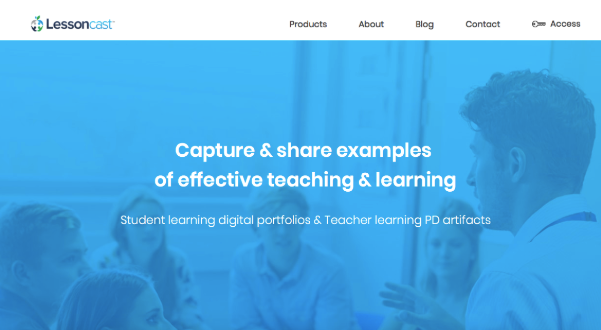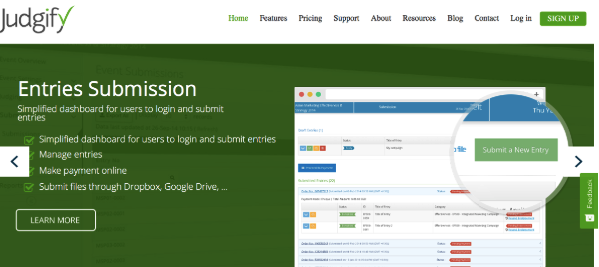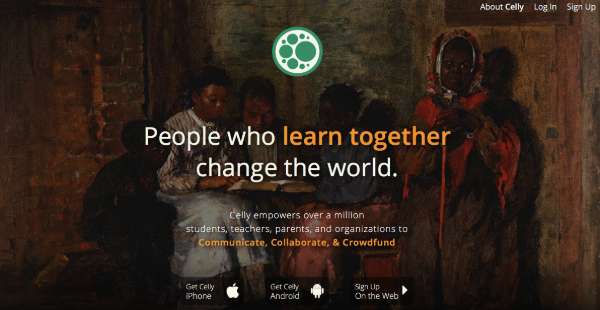How to Inspire the Use of Digital in Academic Settings through Awards Events
In 2017, the debate between Amber Thomas and Neil Morris generated much buzz at Digitech, the annual meeting dedicated to edtech innovation. Navigating between the ideas of learning acceleration and distractful tech use, the speakers came to a common conclusion: technology changes academic settings. By inspiring learners via digital innovation through award projects, you ensure that education keeps pace with invention.
Digital technologies in awards events
What’s the connection between the concept of awards and the popularization of digital tech? There are three roles in which technology can incentivize academic progress: as a tool, as a theme, or as a medium. Based on that, educators can launch contests that either encourage the use of digital technology, motivate learners to discover more about the digital world or use technology as a channel for delivering a message.
How to use digital technologies in academic settings
In the TED talk on classroom innovations, the professional educator, Kayla Delzer, claimed that technology can really help learners achieve more if the teacher can make clever tool choices. To enable the active use of digital media and tech in academic routines, educators can benefit from multiple technology assets:
- Tablets and smartphones. The power of the internet helps students search and analyze information much better. Encourage the use of tablets and smartphones to enable the analysis of global media sources in the preparation of homework, class reports, and more.
- Mobile applications. The employment of mobile in an innovative academic setting opens up many new learning capabilities. For instance, the use of Audioboom which is a popular podcasting ap can be embedded in a reading lesson. Students can record each other as they read aloud and, then, use the recordings to evaluate intonation, tone, emotion, and more.
- SaaS tools. Especially in student contests focused on young people who study specific professions, it’s useful to employ advanced SaaS platforms that promote automation and tech literacy. From InVision for designers to GEVME for event planners, there’s a huge range of progressive tools that prepare students for the global market.
The reasons to use digital technologies in academic settings
The clever use of digital in academic settings has numerous benefits:
- More capacity for academic experiments. Digital tools help educators learn more about students, sharpen their own expertise, and offer innovative ways for reaching academic goals. Whether it’s a single application or a brand-new teaching approach, digital technology has much room for fun.
- Alternative learning. If a student can’t develop necessary English literacy by reading fiction, you can help him/her by introducing an interactive vocabulary building or a grammar app.
- Automated manual tasks. Both as an educator and as a student, the participants in a study process can reap many benefits from task assignment apps, grading tools, or contest submission platforms. By automating the manual work, you free up needed time for creativity and growth in an academic setting.
- Asynchronous learning. Flexibility proves the value of digital technology use in education. With digital assets, students can learn anywhere and anytime without damaging their academic potentials.
How to inspire the use of digital in academic settings through awards events
So, how do we ensure a successful marriage of digital technology and awards events which can give a bright future to global academic settings? Here’s a short “3D Rule” that can serve as a starting guide to the development of your creative project:
- Develop a valuable cause. Using technology for the sake of technology isn’t going to generate the desired buzz. A worthy cause that is focused on the improvement of a specific skill, setting up a unique experiment, or touching the real market should be the top priority in any academic project.
- Determine the role of digital technology. Should it be a medium, a tool, or a theme of your awards campaign? If your goal is to increase awareness, the last option can be a good choice. If you’re more interested in the practical implications of technology use, you’d better use it as a tool or a medium.
- Define the rules, objectives, metrics, and follow-ups. Once you’re good with the event idea, develop a framework for participation, analysis, and evaluation. Communicate the message and core rules to future participants in a timely manner and track the performance in real time. This will help you make a valuable academic experiment out of a student contest
The best examples of using digital in academic settings
The perks of digital tools used in a future-oriented classroom cover not only academic prospects, but also numerous incentives for personal development, self-impression, and creativity. Here are some digital tools that help successful educators spice up the atmosphere in an academic setting:


With two, easy-to-use services, Locker and Binder, LessonCast is a software platform used by teachers and students. Through advanced portfolio building and file sharing possibilities, LessonCast should be a pocket tool in any academic setting.


To set up awards events for students, Judgify can be used as an instrument for automated entry submission, scoring, evaluation, and reporting. This software is a useful tool for both small local competitions and international grant awarding events. Discover how GridMarkets has used Judgify to set up an international contest to see how it works.


Networking is an essential part of the learning process. By using Celly to build communication in academic settings, you can set up chatting groups and send notifications to learners, parents, teachers, and academic supervisors in few clicks.
Conclusion
The value of digital technology in academic settings is determined by the necessity to teach young learners to search and analyze data faster, tap into the realities of the tech-powered market, and integrate global knowledge. Awards events offer an exciting way to embed digital tech into an academic routine.
